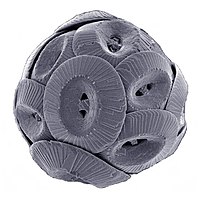
Cryptochromes: Photochemical and structural insight into magnetoreception
Sign Up to like & getrecommendations! Published in 2021 at "Protein Science"
DOI: 10.1002/pro.4124
Abstract: Cryptochromes (CRYs) function as blue light photoreceptors in diverse physiological processes in nearly all kingdoms of life. Over the past several decades, they have emerged as the most likely candidates for light‐dependent magnetoreception in animals,… read more here.
Keywords: insight magnetoreception; structural insight; cryptochromes photochemical; signal transduction ... See more keywords

Unravelling the enigma of bird magnetoreception.
Sign Up to like & getrecommendations! Published in 2021 at "Nature"
DOI: 10.1038/d41586-021-01596-6
Abstract: Original form Arguably the greatest mystery in sensory biology is magnetoreception — how animals sense Earth’s magnetic field and use it as a compass to determine their spatial orientation. Animals as varied as birds, sea… read more here.
Keywords: direction; field; sense; biology ... See more keywords

Chemical compass behaviour at microtesla magnetic fields strengthens the radical pair hypothesis of avian magnetoreception
Sign Up to like & getrecommendations! Published in 2019 at "Nature Communications"
DOI: 10.1038/s41467-019-11655-2
Abstract: The fact that many animals, including migratory birds, use the Earth’s magnetic field for orientation and compass-navigation is fascinating and puzzling in equal measure. The physical origin of these phenomena has not yet been fully… read more here.
Keywords: magnetoreception; radical pair; chemical compass; hypothesis ... See more keywords

Electronic-skin compasses for geomagnetic field-driven artificial magnetoreception and interactive electronics
Sign Up to like & getrecommendations! Published in 2018 at "Nature Electronics"
DOI: 10.1038/s41928-018-0161-6
Abstract: Magnetoreception is the ability to detect and respond to magnetic fields that allows certain organisms to orientate themselves with respect to the Earth’s magnetic field for navigation purposes. The development of an artificial magnetoreception, which… read more here.
Keywords: field; electronic skin; artificial magnetoreception; magnetic field ... See more keywords

Magnetosome magnetite biomineralization in a flagellated protist: evidence for an early evolutionary origin for magnetoreception in eukaryotes?
Sign Up to like & getrecommendations! Published in 2019 at "Environmental microbiology"
DOI: 10.1111/1462-2920.14711
Abstract: The most well recognized magnetoreception behavior is that of the magnetotactic bacteria (MTB), which synthesize membrane-bounded magnetic nanocrystals called magnetosomes via a biologically controlled process. The magnetic minerals identified in prokaryotic magnetosomes are magnetite (Fe3… read more here.
Keywords: origin magnetoreception; flagellated protist; magnetite biomineralization; magnetosome magnetite ... See more keywords

Biological effects of the hypomagnetic field: An analytical review of experiments and theories
Sign Up to like & getrecommendations! Published in 2017 at "PLoS ONE"
DOI: 10.1371/journal.pone.0179340
Abstract: During interplanetary flights in the near future, a human organism will be exposed to prolonged periods of a hypomagnetic field that is 10,000 times weaker than that of Earth’s. Attenuation of the geomagnetic field occurs… read more here.
Keywords: effects hypomagnetic; hypomagnetic field; field; review ... See more keywords